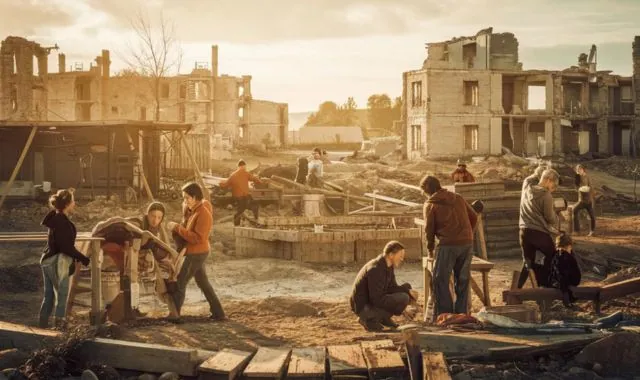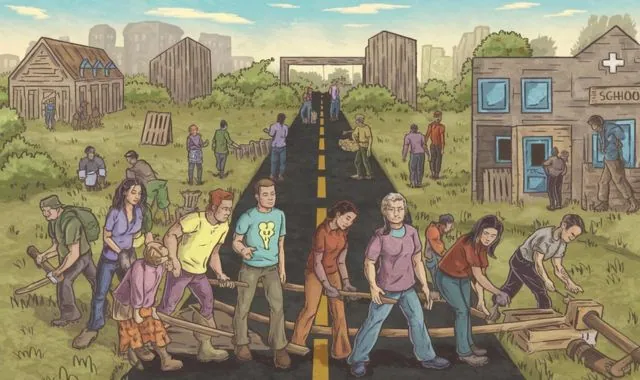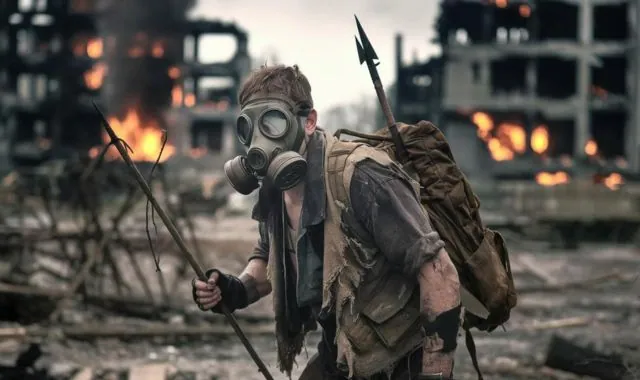Physical Address
304 North Cardinal St.
Dorchester Center, MA 02124
Physical Address
304 North Cardinal St.
Dorchester Center, MA 02124

The Apocalypse Survival a term often associated with the end of the world, can take many forms. From natural disasters to societal collapse, the concept of a post-apocalyptic world has captured the imagination of many. While the exact nature of an apocalypse may vary, the common thread is the breakdown of societal structures and the disruption of everyday life.

Earthquakes, tsunamis, volcanic eruptions, and pandemics can cause widespread destruction and lead to societal collapse.
Economic depression, political instability, and social unrest can erode the foundations of a society and lead to a breakdown of law and order.
AI takeover, nuclear war, or a global cyberattack could disrupt critical infrastructure and cause widespread chaos.
Alien invasions or celestial events like asteroid impacts could pose existential threats to humanity.
Surviving in a post-apocalyptic world presents numerous challenges. Here are some of the most pressing:
Food, water, and shelter will become scarce as infrastructure breaks down and supply chains are disrupted.
Violence and lawlessness will increase as people struggle to survive.
Without access to medical care, disease and illness will be a significant threat.
The trauma of experiencing an apocalypse can lead to mental health issues.
Being prepared for an apocalypse can significantly improve your chances of survival. This includes:
Assemble a kit containing essential supplies such as food, water, first aid supplies, and tools.
Learn basic skills like foraging, hunting, and water purification.
Connect with others in your community to form a support group.

Plundering, the act of taking valuable resources from others, may become a necessity in a post-apocalyptic world. However, it is important to approach plundering with caution and consider the ethical implications.
Prioritize items with a long shelf life, such as canned goods, dried fruits, and grains.
Secure a reliable source of clean water, such as a well or a filtration system.
Gather essential medications and medical supplies.
Collect tools and equipment that can be used for survival, such as weapons, building materials, and transportation.
Obtain electronics and technology that can be useful for communication, navigation, or entertainment.
Firearms, knives, and other weapons can be used for self-defense and hunting.
Axes, saws, and other tools can be used for building, foraging, and self-defense.
Vehicles, bicycles, or animals can be used for transportation and mobility.
Radios, walkie-talkies, and satellite phones can be used for communication.
Gather information about potential targets and their security measures.
Approach targets quietly and avoid attracting attention.
Move quickly and efficiently to minimize your time in dangerous areas.
Be prepared to defend yourself against threats.
Weigh the benefits of plundering against the potential consequences.
Be aware of your surroundings and watch for signs of danger.
Try to avoid confrontations with other survivors.
Watch for signs of traps or booby traps.
Avoid contact with contaminated materials and practice good hygiene.

These locations may offer a wealth of resources, but they can also be dangerous. Be on the lookout for looters, survivors, and other threats.
These locations can be a good source of food, clothing, and other supplies. However, they may be heavily looted or guarded.
Factories, warehouses, and other industrial facilities may contain valuable equipment, tools, and materials. However, they can also be dangerous places to explore.
Rural areas may offer a more peaceful environment, but they can also be challenging to navigate. Look for farms and ranches that may have livestock, crops, or other valuable resources.
These locations may contain valuable equipment, weapons, and supplies, but they are also likely to be heavily guarded.
Choose a location that is defensible, has access to resources, and is relatively safe.
Build fortifications to protect your base from attacks and set up security measures to deter intruders.
Stock your base with essential supplies and build necessary infrastructure, such as water filtration systems and sanitation facilities.
Encourage cooperation among your group members and build a strong sense of community.
In a post-apocalyptic world, the survival instinct may override moral considerations. However, it is important to consider the long-term consequences of plundering.
While plundering may be necessary for survival, it is important to respect the property of others whenever possible.
Plundering can create resentment and conflict among survivors and may ultimately undermine the stability of a post-apocalyptic society.
Conserve resources and develop sustainable practices to ensure long-term survival.
Work together with others to build a self-sufficient community that can produce its own food, water, and other necessities.
Develop strategies for protecting yourself and your group from threats, both internal and external.
Despite the challenges of a post-apocalyptic world, it is important to maintain hope for the future and work towards rebuilding a better society.

In the face of an apocalyptic world, plundering may become a necessity for survival. However, it is important to approach plundering with caution and consider the ethical implications. By understanding the challenges of post-apocalyptic life, preparing for emergencies, and developing a sustainable plundering strategy, individuals can increase their chances of survival. While plundering may be necessary in the short term, it is essential to strive towards building a more just and equitable society in the long run.
Natural disasters (e.g., earthquakes, tsunamis, pandemics)Societal collapse (e.g., economic depression, political instability)Technological catastrophe (e.g., AI takeover, nuclear war)Extraterrestrial threats (e.g., alien invasions, asteroid impacts)
Create a survival kit with essential supplies.Develop survival skills like foraging, hunting, and water purification.Build a support network with others in your community.
Food, water, medicine, tools, and technology.
Weapons, tools, transportation, and communication devices.
Gather intelligence, be stealthy and efficient, avoid dangers, and consider ethical implications.